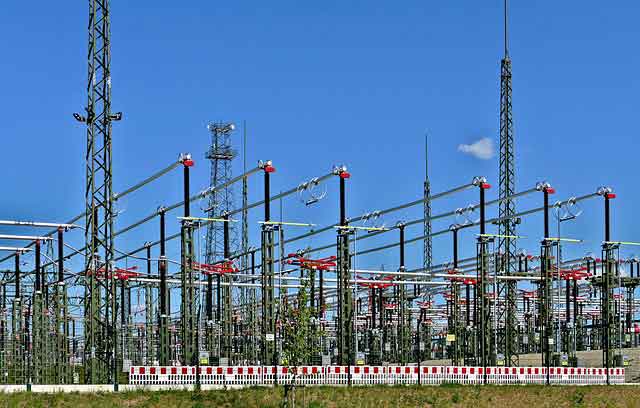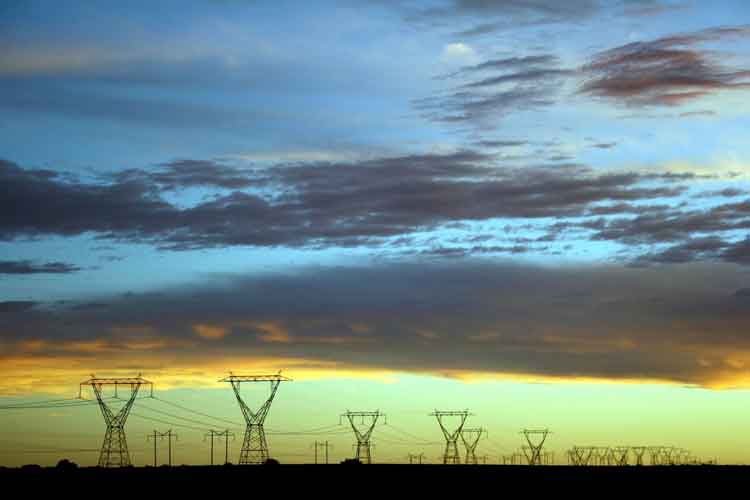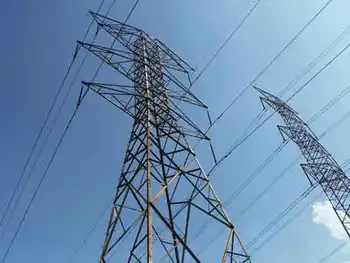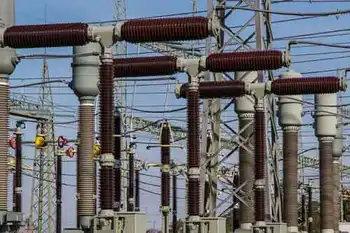Berlin Geothermal Plant in El Salvador Set to Launch This Year

High Voltage Maintenance Training Online
Our customized live online or in‑person group training can be delivered to your staff at your location.

- Live Online
- 12 hours Instructor-led
- Group Training Available
El Salvador Geothermal Expansion boosts renewable energy with a 7 MW Berlin binary ORC plant, upgrades at Ahuachapan, and pipeline projects, strengthening clean power capacity, grid reliability, and sustainable growth in Central America.
Key Points
A national push adding binary-cycle capacity at Berlin and Ahuachapan, boosting geothermal supply and advancing sites.
✅ 7 MW Berlin binary ORC plant entering service.
✅ Ahuachapan upgrade adds 2 MW, total geothermal 204 MW.
✅ Next: Chinameca, San Miguel, San Vicente, World Bank backed.
El Salvador is set to expand its renewable energy capacity with the inauguration of the 7-MW Berlin binary geothermal power plant, slated to go online later this year. This new addition marks a significant milestone in the country’s geothermal energy development, highlighting its commitment to sustainable energy solutions. The plant, which has already been installed and is currently undergoing testing, is expected to boost the nation’s geothermal capacity, contributing to its growing renewable energy portfolio.
The Role of Geothermal Energy in El Salvador’s Energy Mix
Geothermal energy plays a pivotal role in El Salvador's energy landscape. With the combined output from the Ahuachapan and Berlin geothermal plants, geothermal energy now accounts for about 21% of the country's net electricity supply. This makes geothermal the second-largest source of energy generation in El Salvador, underscoring its importance as a reliable and sustainable energy resource alongside emerging options like advanced nuclear microreactor technologies in the broader low-carbon mix.
In addition to the Berlin plant, El Salvador has made significant improvements to its Ahuachapan geothermal power plant. Recent upgrades have increased its generation capacity by 2 MW, further enhancing the country’s geothermal energy output. Together, the Ahuachapan and Berlin plants bring the total installed geothermal capacity to 204 MW, positioning El Salvador as a regional leader in geothermal energy development.
The Berlin Binary Geothermal Plant: A Technological Milestone
The Berlin binary geothermal power plant is especially noteworthy for several reasons. It is the first geothermal power plant to be constructed in El Salvador since 2007, marking a significant step in the country's ongoing efforts to expand its renewable energy infrastructure while reinforcing attention to risk management in light of Hawaii geothermal safety concerns reported elsewhere. The plant utilizes a binary cycle geothermal system, which is known for its efficiency in extracting energy from lower temperature geothermal resources, making it an ideal solution for regions like Berlin, where geothermal resources are abundant but at lower temperatures.
The plant was built by Turboden, an Italian company specializing in organic Rankine cycle (ORC) technology. The binary cycle system operates by transferring heat from the geothermal fluid to a secondary fluid, which then drives a turbine to generate electricity. This system allows for the efficient use of geothermal resources that might otherwise be too low in temperature for traditional geothermal plants, enabling pairing with thermal storage demonstration solutions to optimize output.
Future Geothermal Developments in El Salvador
El Salvador is not stopping with the Berlin geothermal plant. The country is actively working on other geothermal projects, including those in Chinameca, San Miguel, and San Vicente. These developments are expected to add 50 MW of additional capacity in their first phase, reflecting a broader shift as countries pursue hydrogen-ready power plants to reduce emissions, with a second phase, supported by the World Bank, planned to add another 100 MW.
The Chinameca, San Miguel, and San Vicente projects represent the next wave of geothermal development in El Salvador. When completed, these plants will significantly increase the country’s geothermal capacity, further diversifying its energy mix and reducing reliance on fossil fuels, and will require ongoing grid upgrades, a task complicated elsewhere by Germany grid expansion challenges highlighted in Europe.
International Support and Collaboration
El Salvador’s geothermal development efforts are supported by various international partners, including the World Bank, which has been instrumental in financing the expansion of geothermal projects, as utilities such as SaskPower geothermal plans in Canada explore comparable pathways. This collaboration highlights the global recognition of El Salvador’s potential in geothermal energy and its efforts to position itself as a hub for geothermal energy development in Central America.
Additionally, the country’s expertise in geothermal energy, especially in binary cycle technology, has attracted international attention. El Salvador’s progress in the geothermal sector could serve as a model for other countries in the region that are looking to harness their geothermal resources to reduce energy costs and promote sustainable energy development.
The upcoming launch of the Berlin binary geothermal power plant is a testament to El Salvador’s commitment to sustainable energy. As the country continues to expand its geothermal capacity, it is positioning itself as a leader in renewable energy in the region. The binary cycle technology employed at the Berlin plant not only enhances energy efficiency but also demonstrates El Salvador’s ability to adapt and innovate within the renewable energy sector.
With the continued development of projects in Chinameca, San Miguel, and San Vicente, and ongoing international collaboration, El Salvador’s geothermal energy sector is set to play a crucial role in the country’s energy future. As global demand for clean energy grows, exemplified by U.S. solar capacity additions this year, El Salvador’s investments in geothermal energy are helping to build a more sustainable, resilient, and energy-independent future.















